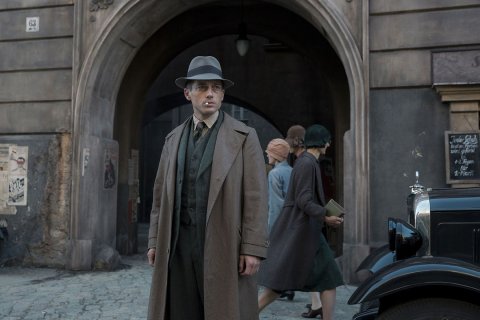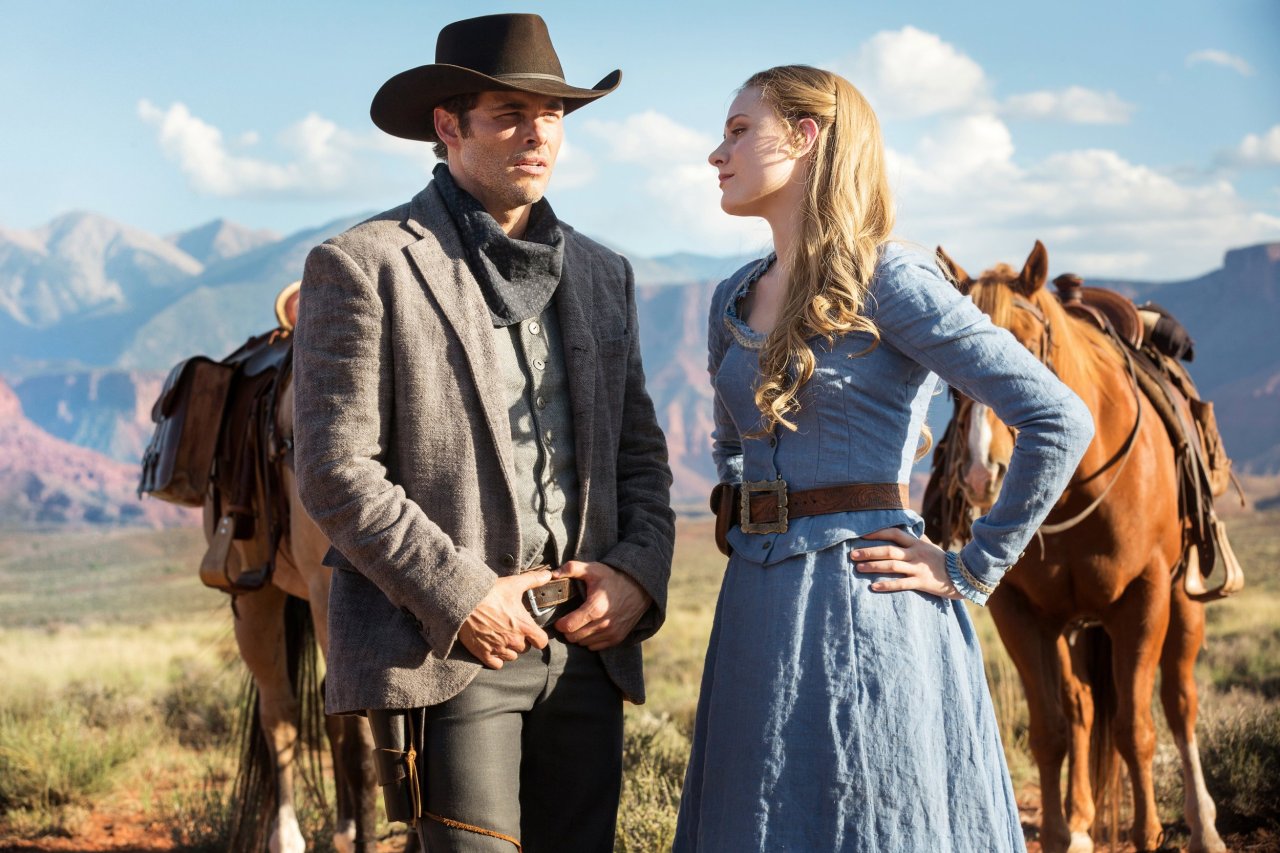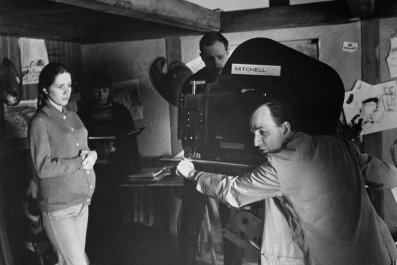Miss the days of predictable, uncomplicated television? Blame Christopher Nolan.
The Dark Knight mastermind's 2000 psychological thriller Memento, based on his younger brother Jonathan's idea, was a head spinner. Trauma victim Leonard (Guy Pearce) searches for the man who murdered his wife—but he suffers from anterograde amnesia, a condition that produces short-term memory loss every five minutes, preventing him from forming new memories. Nolan visualized the main character's profound disorientation by splitting the plot between color sequences of Leonard trying to solve the mystery, presented in reverse chronological order, and black-and-white flashbacks presented chronologically. The highly complex, nonlinear narrative enthralled moviegoers and critics alike. With box-office success and two Academy Award nominations (one for best original screenplay), Nolan was on his way to becoming one of our most influential contemporary filmmakers.
The biggest impact might have been felt on television. More than a decade after Twin Peaks pioneered the model, Nolan showed there was an audience for a labyrinthine style of storytelling that prioritized ingenious structure and puzzle solving over character development and, often, logic. With shows created post-Memento, the confusion is intentional, and the exposition never stops. In other words, they're not the simple comfort food of Law & Order; they're baked Alaska.
In 2004, Lost ran with that idea for six seasons, adding a cast of seemingly thousands to the mix of flash-forwards, flashbacks and myriad, often confounding clues. It was a veritable Russian doll of a show, and the small screen wasn't big enough to contain it. Lost spawned books and websites where obsessive fans desperately searched for hints to help solve mysteries about the plot and characters, and the show's success inspired a host of copycats. It was the ideal form of storytelling for the internet era. Where fans had previously exchanged theories and highlights at the office the next day, online forums allowed for endless virtual deconstruction—some of it more complex than the show itself. (Lost's writers talked of being influenced by the show's fans in an unprecedented way.) The watercooler show had been replaced by rabbit-hole television.
Nolan upped his own ante with the 2010 film Inception, a massive critical hit so intricate it demanded repeat viewings. The film's premise, of stealing information by entering another person's subconscious, presaged another twisty, complex TV series: HBO's Westworld, based on the 1973 film of the same name and co-created by Jonathan Nolan. The show, which premiered in 2016 and returns for Season 2 on April 22, became the most-watched first season in HBO's history, and it includes the usual thought-provoking tropes of the Nolan brothers. "The depth of Westworld lies not in asking questions about memory, free will and what makes us human, but in whether we can become more human than what we let ourselves to be, whether our stories can be richer and more meaningful than what the culture allows," wrote Entertainment Weekly TV critic Jeff Jensen.
Given the commercial success of these brainteasers, it's no mystery why they are proliferating, and you can see Christopher Nolan's influence on all of them. (Nolan, for his part, was heavily influenced by Ridley Scott's 1982 film Blade Runner.) Here are the most recent, and best, of TV's puzzle boxes.

BABYLON BERLIN (Netflix)
Based on the novels of Volker Kutscher and co-written and co-directed by Tom Tykwer (Run Lola Run), Babylon is the most expensive non-English TV drama ever—costing a reported $40 million—and it shows. A visual and nostalgia feast, the 16-episode thriller takes place in 1929 Berlin, during the economically depressed, creatively vibrant Weimar Republic, with its permissive attitudes toward sex, drugs and crime. (Bryan Ferry makes a cameo as a nightclub singer in a sadomasochistic club.) The show is primarily a crime drama, but it also serves as a vivid explanation for the rise of Adolf Hitler. It might be the most straightforward of the shows here, but Babylon's complex plot twists and more than 19 characters demand close attention.
COUNTERPART (Starz)
If you love J.K. Simmons (and we do), then you'll be doubly happy with this futuristic thriller, created by Justin Marks. Once again, we're in Berlin, but this time it's present day (we think?), and the city is divided not by a wall but by a parallel world created when an experiment went wrong 30 years ago. The result: Everyone on one side has a genetically identical counterpart on the other (thus two Simmonses)—though only a few people on either side are aware that a parallel world exists. It's confusing! But it's also clever, atmospheric and suspenseful, with notable nods to spymaster John le Carré. (Note: Beginning at 12:35 PM on Sunday, March 25th, Starz will air a marathon of the first nine episodes, ahead of the Season 1 finale on April 1st at 8 PM ET.)
DARK (Netflix)
What is it about Germany and layered narratives? That's where we find ourselves again, in Netflix's first original German-language drama, though this time the location is a rustic backwater rather than Berlin. The series, created by Baran bo Odar and Jantje Friese, has been described as a European Stranger Things, and that's true to an extent. But rather than endless '80s pop culture references and an Upside Down, this artier show is about bending time—or going through it or something—with a narrative that jumps between 2019, 1985 and 1953. The atmospheric puzzler has a nice shocker at the end, which will be dealt with in Season 2 (now under construction).
ALTERED CARBON (Netflix)
You'll need a notebook to track the knotty plot of Laeta Kalogridis's 10-part series, an adaptation of the 2002 cyberpunk novel by Richard K. Morgan. The action takes place 350 years in the future, when a person's memories can be downloaded into alien-engineered "stacks," then reattached to new physical bodies, or "sleeves." The show borrows heavily from Blade Runner, including actor Joel Kinnaman's pulpy, hard-boiled detective, and the plot goes to hell in the last two episodes, but it's lurid good fun until then (and even after), thanks to dry, noir humor and lots of sci-fi eye candy.
















